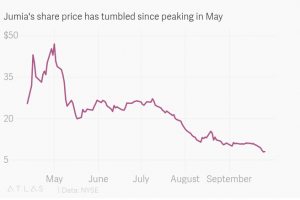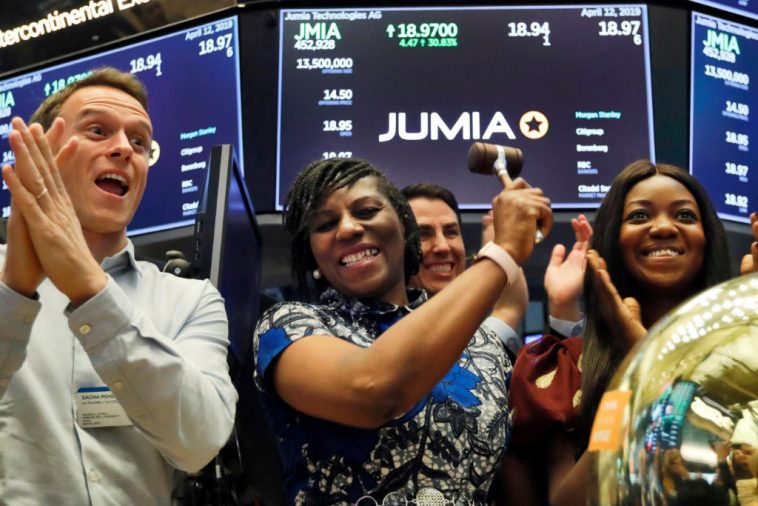TechInAfrica — Jumia, an African e-commerce operator, experienced a decline in stock price below its IPO price. It hit a trading low of $7.56 per share on the New York Stock Exchange on Thursday, September 26. It closed the trading day down to $7.93 or a market capitalization of $614.9 million. The opening price on Friday increased to $8.73.
The stock price is far from its price on the IPO day, $14.50 in April. The company which operates in 14 African countries was valued at approximately $1.12 billion. Soon after, the shares took off and once reached its peak in May at $49.77, increasing its value to practically $4 billion.
Often times, share prices and market caps are not consistent with publicly-listed companies’ operational situation.
The values are often defining many factors outside the company’s management. But in this case, the stock market is a reflection of the company’s management. In August, Jumia’s management revealed that the company is currently struggling with internal fraud of improper sales practices of up to $18 million, rising legal threats, and increasing losses up to $70 million.

Previously titled as tech ‘unicorn’, Jumia is now releasing its status that is considered a rarity. The drop in valuation as the company failed to maintain its long-term health. One way to ensure the long-term health of Jumia’s stock is to perform a sustainable path to profitability.
Though the profit goals are questionable to be achieved soon, Jumia still maintains its operations across 14 African markets. Last week, the company has launched a partnership to build pick-up stations at Vivo’s Energy’s more than 2,000 fuel station outlets across Africa.
Jumia grew rapidly thanks to its retail network that offers online-only customers by allowing customers place and pick-up orders through its physical stations. However, it is unfortunate that the company facing challenges. It feels unlikely that Jumia will back into the prime shape soon, but it is still possible that the shares rebound and returns to its unicorn status.
Source: Quartz Africa





